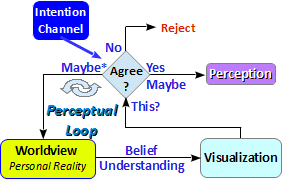Re: Describing predisposition to point of view
Posted: July 15th, 2021, 9:02 pm
Protagoras wrote: ↑July 15th, 2021, 11:43 amSuch fundamental influencers of thought are what I am trying to get at.
Having read all the thread. I will come at if from a slightly different angle.
I would seperate these viewpoints into the artistic and scientific temperament.
The feelings based and the materialist temperament.
The creative temperament and the controlling temperament.
I am using "point of view" in the sense of Physicalist or Dualist. What is the foundation assumption that informs choice (or opinion).
I am using "perspective" in the sense of the discerning intellect enjoyed by the person expressing a point of view. Another way of saying that might be whether the person who has a Physicalist point of view, for instance, has the perceptual tools to express an informed opinion. This is not an informed opinion in the sense of education. There are many well-educated people who express untenable opinions, apparently because their point of view prevents them from perceiving "the rest of the story" possibly suggested by a more complete perspective.
Temperament is a concept that I think helps me get to my point. We can parse differences in temperament in many ways. Yours is a good way. I tend to say "As an engineer ..." because I know the way I see the world is very different than, say, a psychologist. How we parse it is not as important as the concept, itself.
A story I was once told by a telephone equipment sales man concerned a lost contract because they misread the temperament of their client. They treated an apparent high roller casino executive as more flamboyant than he was. He asked, "Do you really think I would be trusted with this job if I was as flamboyant as you thought?" Those sales people were later given a course in "styles," which is a way to consider temperament.
Thanks!
